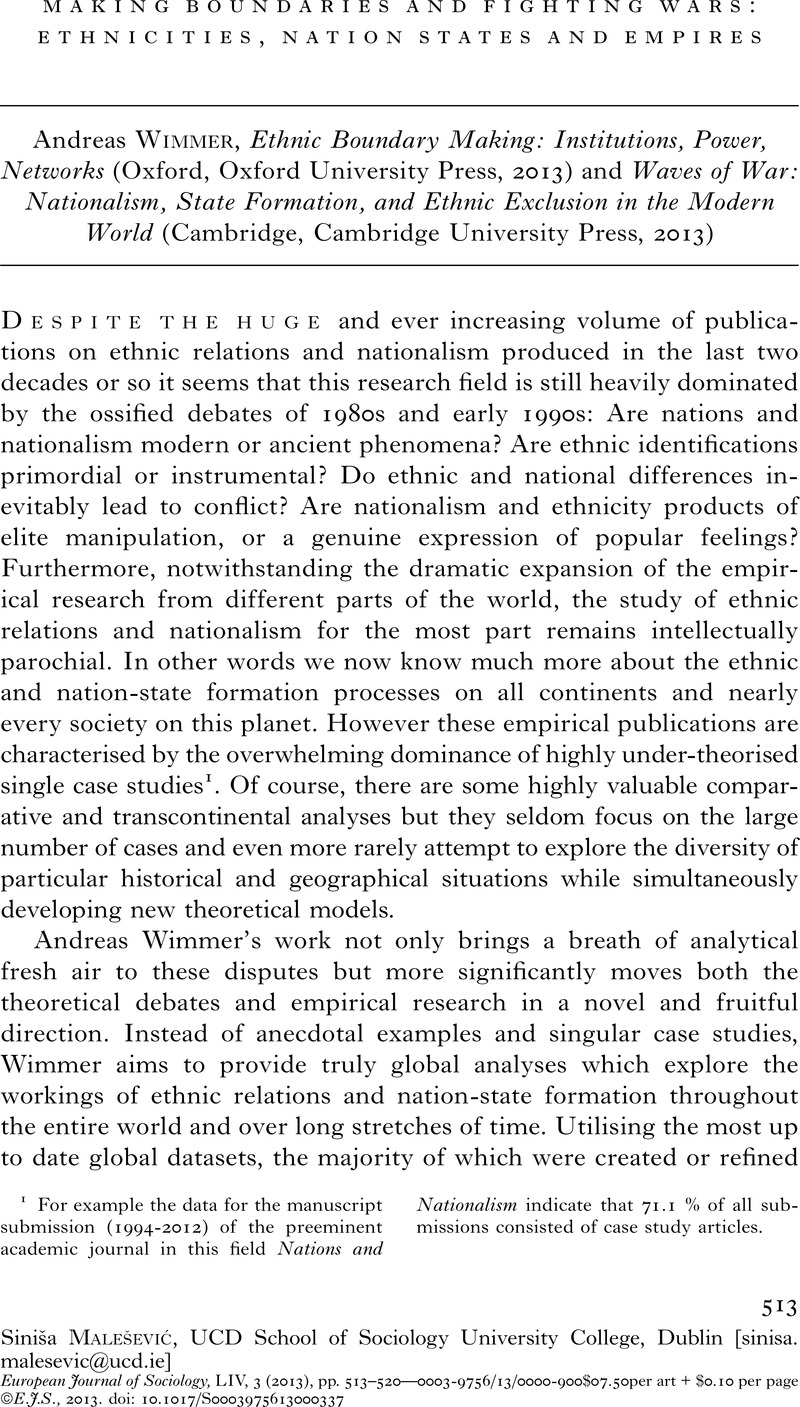Published online by Cambridge University Press: 22 January 2014

1 For example the data for the manuscript submission (1994-2012) of the preeminent academic journal in this field Nations and Nationalism indicate that 71.1 % of all submissions consisted of case study articles.
2 See Andreas Wimmer, Nationalist Exclusion and Ethnic Conflicts: Shadows of Modernity (Cambridge, Cambridge University Press, 2002) and Andreas Wimmer and Nina Glick Schiller (2002) “Methodological nationalism and the study of migration”, Archives Européennes de Sociologie 53(2): 217-240.
3 S. Malešević (2012) “Wars that make States and Wars that make Nations: Organised Violence, Nationalism and State Formation in the Balkans”, Archives Européennes de Sociologie 53(1): 31-63.
4 K. Kumar, 2010, Nation-States as Empires, Empires as Nation-States: Two Principles, One Practice?, Theory and Society, 39(2): 119-143. J. Burbank and F. Cooper, 2010, Empires in World History: Power and Politics of Difference (Princeton, Princeton University Press).
5 M. Centeno, 2003, Blood and Debt: War and the Nation-State in Latin America (Philadelphia, University of Pennsylvania Press).
6 The attempt to use railway tracks as a proxy for industrialisation seems just as problematic on operational/empirical grounds. For example, profoundly rural 19th and early 20th century societies, such as Ireland and India, among others, had highly advanced railway systems but were not industrialised at all. Thus Ireland was “one of the first European countries to rail-roadise” having “65 miles of track in 1845, 1,000 in 1857, 2,000 in 1872 and, with 3,500 by 1914, boasted one of the densest networks in the world.” See T. Garvin, 2003, Preventing the Future (Dublin, Gill and Macmillan: 88).